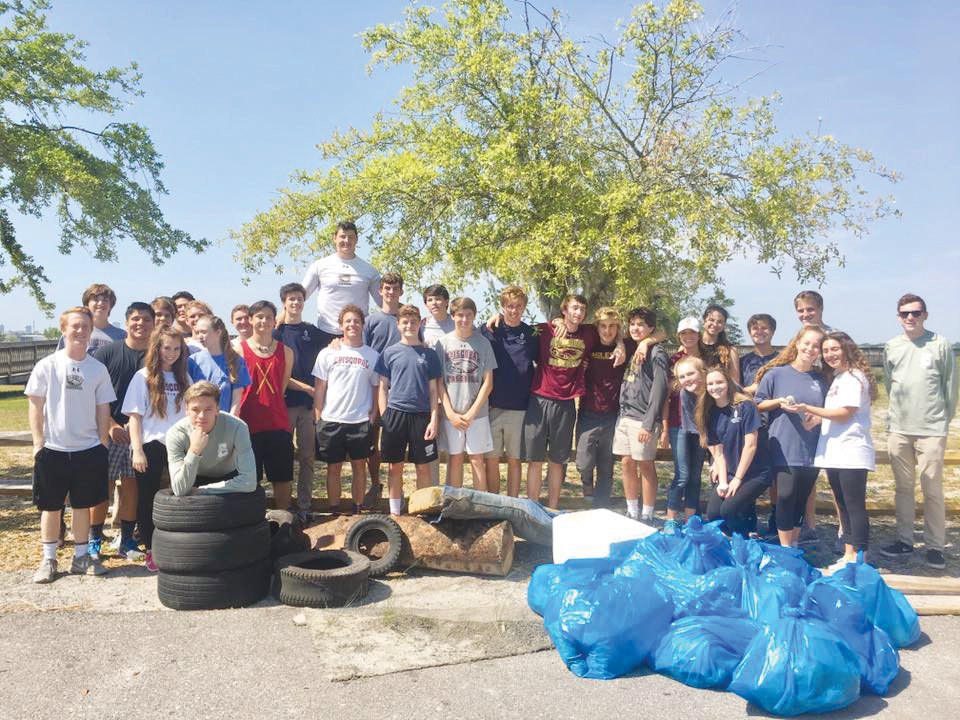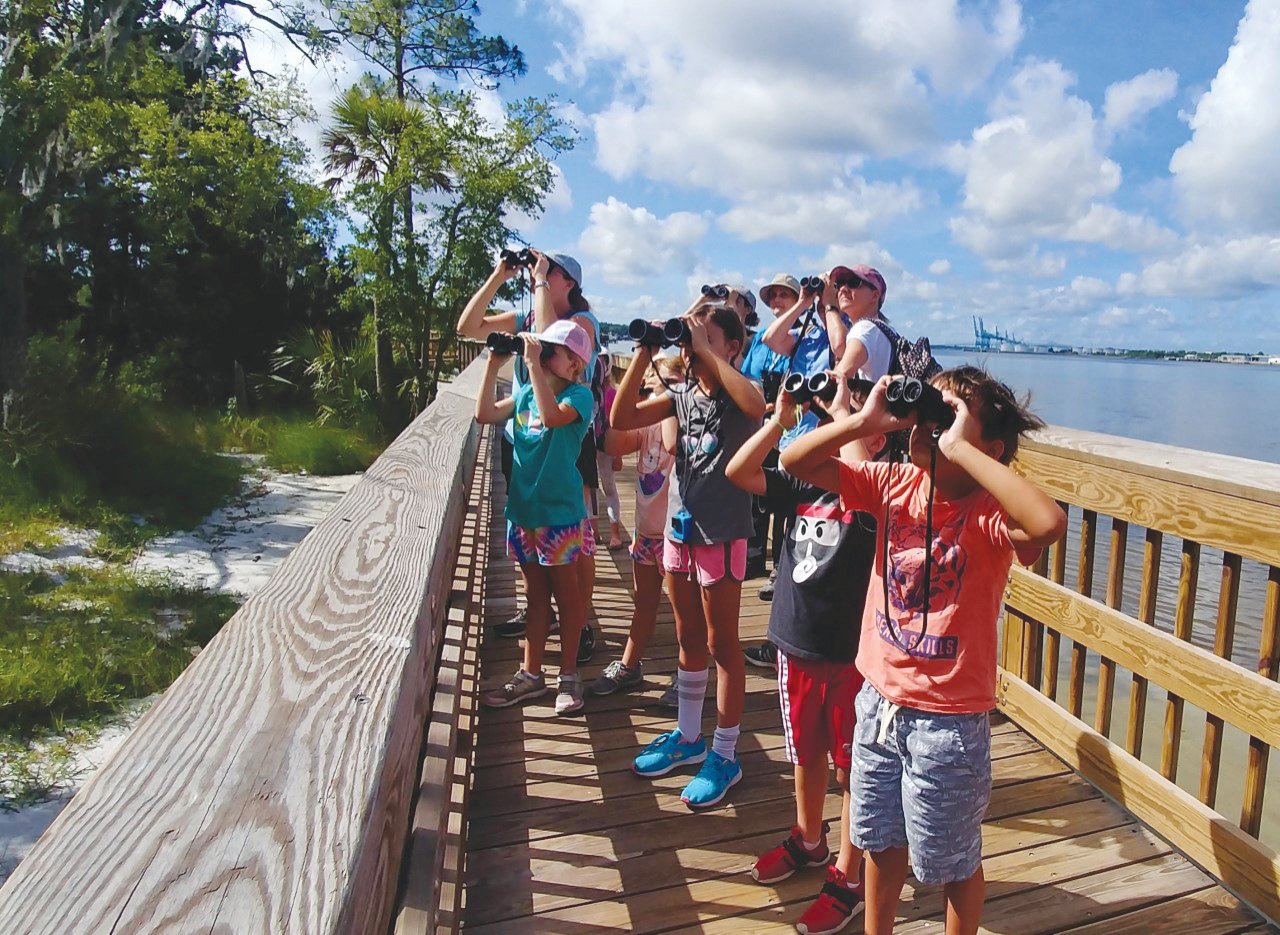First Black Creek Eco Festival creates new generation of stewards for waterways
GREEN COVE SPRINGS – Every morning, walkers along the St. Johns River are treated to gulls perching on the wooden posts of the old docks and the fin of a dolphin slicing through the surface of the …
This item is available in full to subscribers.
Attention subscribers
To continue reading, you will need to either log in to your subscriber account, below, or purchase a new subscription.
Please log in to continueDon't have an ID?Print subscribersIf you're a print subscriber, but do not yet have an online account, click here to create one. Non-subscribersClick here to see your options for subscribing. Single day passYou also have the option of purchasing 24 hours of access, for $1.00. Click here to purchase a single day pass. |
First Black Creek Eco Festival creates new generation of stewards for waterways
GREEN COVE SPRINGS – Every morning, walkers along the St. Johns River are treated to gulls perching on the wooden posts of the old docks and the fin of a dolphin slicing through the surface of the water. Fisherman with buckets filled with murky water cast their lines over the railing, while dog walkers and the walkers stroll.
Rivers have always held special importance and fascination for man.
In the earliest days, interest in rivers centered on the more material things – a source of water, a means of transportation and habitat of edible fish and fowl. While these are still important to us today, rivers have assumed another dimension of significance, for all life on earth is connected to the vast web of rivers and streams. They are essential to each one of us, for the water we drink, the food we eat, our economy and our health.
When we look out over the water, we are reminded of the current that connects us, the subtle ebb and flow like the pulse of a deep vein breathing new life into the world. It is no wonder that the St. Johns River is called the lifeblood of Florida.
Extending 310 miles from Cape Canaveral to Jacksonville, the St. Johns River travels through 18 counties and is the second largest ecosystem in the state to the Florida Everglades. Even if you’ve never felt the strength of its rapids or the brush of a nimble trout against your legs, the river is vital to so many people.
“It’s 310 miles long and serves over five million people. They fish, they recreate, and they live alongside it. They have cities. They have rural areas,” said Ashleigh Boice, Education Director of the St. John Riverkeeper, a nonprofit based in Jacksonville that’s dedicated to informing, involving, and engaging the community in the efforts to protect and restore the river’s health. The St. Johns River is a wonderful place. I hope to get more people connected with it so that we can become more resilient and be better stewards of this wonderful resource.”
The Riverkeeper partnered with Clay County parks as part of its education and public outreach program and will be hosting its first Black Creek Eco festival on Sunday, Oct. 23 from 10 a.m. to 3 p.m. at Camp Chowenwaw Park in Green Cove Springs. The event will focus on the ecology and history of Black Creek and the St. Johns River with family activities, educational presentations, hands-on experiences and more.
“The biggest focus is on education and exposure. The most significant focus is on connecting the kids to the river and giving them ways they help the river. We are teaching children how they can save the river. That’s our main goal,” Boice said.
In recent years, the ecological health and integrity of the St. The St. Johns River system has become threatened due to inadequate protections and the cumulative impacts of a growing population. The St. Johns River was named sixth in a top-10 list of endangered rivers by the American Rivers in 2008, a national environmental group.
“It certainly is an endangered river. It’s extremely vulnerable, especially as we go through climate change,” said Boice.
As sea levels rise, we have a high inundation of salt, so the river is becoming saltier and saltier further upriver, but you’re also having problems with all the straws that people are putting in the Florida aquifer. The amount of freshwater coming out of the springs is lower and lower. Not only is less fresh water coming into the river, but we’ve also got more salt coming in, which is making these ecosystems more vulnerable.”
Typically a brackish ecosystem can adapt. However, freshwater trying to adapt to saltwater is harder than saltwater environments adapting to freshwater because freshwater ecosystems are typically less tolerant of salty water.
“And then of course you have these storm surges that bring more saltwater and more garbage. Right now, just because of Hurricane Ian, all the water that it dropped down south, all the leaky septic tanks, all the sewage that goes into the water, it's all coming up here in the next couple of weeks. So there are a lot of people along the river that are vulnerable, a lot of habitats that could face peril. It’s not a good situation,” Boice said.
However, the St. John Riverkeeper’s biggest advocacy plan is for the restoration of the Ocklawaha River.
“Silver Springs is a massive natural Spring. It flows through an ancient river called the Ocklawaha and it flows out into the St. Johns River. It provides a massive amount of freshwater,” Boice said.
In the 1960s, different dams were installed throughout the Ocklawaha River and Florida Barge Canal, which was going to be a massive canal cut across the state of Florida in that area. However, because of environmental and financial concerns, the federal government eventually halted the project, but the obsolete dam across the Ocklawaha and the impounded pool of water remain after all these years.
“Now we have this long, man-made strip of water in the middle of this area connecting to the Ocklawaha River. These dams are still closed. The one that is causing so many problems is called the Rodman Dam and it blocks off a massive amount of water flowing into the Ocklawaha,” Boice said. “The dam is ready to go, it’s just a matter of when.”
Boice believes that the best way to ensure the health and longevity of the river is to educate people about environmental issues. “It’s easier to tell kids and start them early about how endangered the river is, about resiliency, about how the climate is changing, instead of trying to convince older adults that all this is changing in front of their eyes. It’s harder for them to grasp,” said Boice. “So that’s one of the biggest things that we are doing. We are teaching children how they can save the river. We are working with various city and state and federal groups up and down the St. John’s River. We try to fight what we can and we try to mitigate what we can’t fight.”
To become better stewards of the River, the Riverkeeper offer experiential learning opportunities on the water, utilizing the river as a resource for furthering student understanding of the science of our river dynamics as well as an opportunity to explore the interconnectedness of our economy, community and river health. As river dwellers, we have a responsibility to each other, and our children and grandchildren to protect this natural resource by keeping informed about issues and how to resolve them.
For more information about the St. John Riverkeeper or how you can get involved, go to their website at stjohnsriverkeeper.com. If you want to take action, you can also sign up for upcoming volunteer orientations. It's a very good way to contribute to a clean and healthy Black Creek and St. John’s River.










